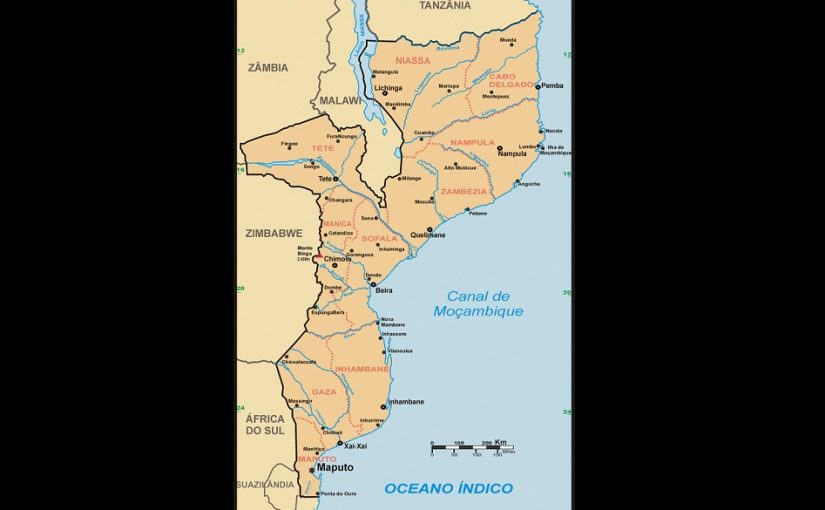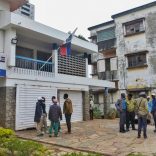Mozambique: Former Renamo guerrillas ordered to hold conference
Mozambique: Terrorist attacks destroying public services – Minister

Map: Wikimedia Commons
Terrorist attacks are making it impossible to provide citizens with public services in parts of the country, due to the destruction of infrastructure, said the Minister of State Administration, Ana Comoana, on Thursday.
Speaking at the opening of a meeting of the Coordinating Council of her Ministry, held at the beach resort of Bilene, in the southern province of Gaza, Comoana said that attacks by islamist terrorists in the northern province of Cabo Delgado, and by the self-styled “Renamo Military Junta”, in Manica and Sofala in the centre of the country, had severely affected public servants, including teachers and health workers, and the state administration as a whole.
She praised “our professional colleagues who are in the theatre of operations fighting against those who are spreading pain and mourning, and making it impossible to provide services. State employees in these areas are calling for all manner of support and assistance”.
The impact of armed violence adds to the list of challenges facing the public administration. Comoana said these included delays in fixing certain categories of wages, retirement pensions, funeral allowances and medical assistance.
“Despite decentralisation, the process of fixing exceptional wages is still done centrally”, she said. “We shall set up a tripartite commission between the Ministry of State Administration, the Ministry of Health and the Ministry of Economy and Finance to look at this matter in depth”.
Despite these constraints, Comoana claimed that advances had been made in reforms of the public administration, aimed at improving working conditions for the staff, and guaranteeing the provision of good quality services for citizens.
She said the Coordinating Council will review the reforms under way in the sector “which seek to respond to the challenges arising from decentralisation and the need for us to bank on the training and professionalisation of public servants”.
Luisa Meque, the general director of the country’s relief agency, the National Disaster Management Institute (INGC), told the meeting that the work of mapping areas of risk in 48 of the country’s 154 districts is nearing its conclusion.
She added that the INGC is training staff for search and rescue missions which may be necessary in the 2020-2021 rainy season. She was sure these actions will be completed in time to guarantee the resettlement of people in safe areas, in the event of flooding.
“During the rainy season we must have people in safe areas, and this work of mapping determines where we shall undertake resettlement”, said Meque.
As for the INGC’s contingency plan for the rainy season, Meque said the institution is awaiting support from its cooperation partners, following the appeal launched by the government to mobilise the necessary funds.
The INGC presented the contingency plan in late October. Implementing it would need at least 7.2 billion meticais (about 100 million US dollars). The 7.2 billion meticais would be used to meet the needs of an estimated 1.6 million people who could be affected by natural disasters during the rainy season.
Meque told the Coordinating Council that the INGC is already on the ground providing assistance to about 16,000 people displaced by the armed conflicts in the centre and north of the country.
The major challenge, she said, is creating conditions so that those affected by terrorist attacks can resume productive lives and stop depending on outside support.












Leave a Reply
Be the First to Comment!
You must be logged in to post a comment.
You must be logged in to post a comment.